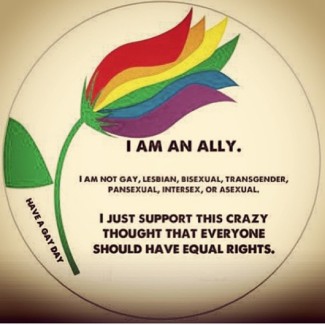The Nurse In Utah, Blood Draws, The 4th Amendment, SCOTUS Decisions And More
Fourth Amendment of the U.S. Constitution
“The right of the people to be secure in their persons, houses, papers, and effects, against unreasonable searches and seizures, shall not be violated, and no warrants shall issue, but upon probable cause, supported by oath or affirmation, and particularly describing the place to be searched, and the persons or things to be seized.”
Here is a disclaimer that might be necessary because of people who want to pick at every word I write to falsely accuse me of practicing law or trying to be a lawyer. What follows regarding the constitution and state rights are things that I learned in my senior year of high school. My freshman year college political science class and junior college class in business law also play significant roles in what I learned and retained about courts and the law. So there!

Alex Wubbels
When I heard about Alex Wubbels, the nurse in Utah who was taken into custody for refusing to allow a blood draw on an unconscious patient, it was as if I was taken back into time. Not only was I taken back in time to remember those political science, social studies and business law classes, but also because I thought the controversy over blood draws and hospitals had been resolved years ago.
When reading the opinions of some others, I wonder if the books assigned to classes or even the teachers or professors fully addressed that the issue in America’s Civil War was over the rights of the states? That war was to decide whether the federal government had political power to regulate or abolish slavery within individual states. The federal government did abolish slavery in the land, and also gave states the right to legislate their own laws as long as those laws do not violate the U.S. Constitution.
When the Supreme Court of the United States decides to hear cases involving state laws, they decide them based on the U.S. Constitution.
In 2016, Justice Samuel A. Alito, Jr. delivered the decision of the Supreme Court in consolidated cases Birchfield v. North Dakota, Bernard v. Minnesota and Beylund v. Levi.
In its 7-1 opinion, the U.S. Supreme Court ruled that it is a violation of the Fourth Amendment for states to prosecute suspected drunken drivers for refusing warrantless blood draws when they are arrested. The majority opinion delivered by Justice Samuel A. Alito Jr. held that states may, however, require a warrantless breath test incident to arrest because such tests are less intrusive.
In its decision, SCOTUS points out that today, all 50 states have adopted implied consent laws that require motorists, as a condition of operating a motion vehicle with the State, to consent to BAC (blood alcohol content) testing if they are arrested or otherwise detained on suspicion of driving under the influence.
“In addition, the breath tests are capable of revealing only the amount of alcohol in blood, unlike the collection of DNA. And the breath test is likely to produce no greater embarrassment than is already inherent in the arrest. Blood tests are a different matter. They are more intrusive than blowing into a tube, and the preserved sample could yield more information than a blood-alcohol reading.”
I was surprised – seriously, that the situation involving nurse Wubbels took place. That’s because Illinois faced the blood draw issue years ago. In 2008, there was an accident in Loves Park, IL. The police said that the driver was on drugs. They took him to Rockford Memorial Hospital where the doctor refused to draw his blood without a court order. The Winnebago County State’s Attorney argued that under Illinois law, no one can refuse to have their blood drawn if there’s been an accident involving serious injury or death.
The clock was ticking. The police wanted the blood draw. The hospital said “no”, not without a court order. The driver was taken to the Winnebago County jail where the police eventually delivered a subpoena for a blood draw and it was taken by a jail nurse.
The key players in that issue subsequently faced sounding like hypocrites. On August 30, 2008, Loves Park police Sargent Dave Jacobson was charged with DUI. Jacobson refused to submit to a field sobriety test and a blood sample. The Winnebago County State’s Attorney at that time was Phil Nicolosi. Nicolosi said that Jacobson was well within his rights to refuse to submit to the tests because he was not involved in an accident resulting in serious injury or death.
Thus, we reached the pertinent part of the blood draw issue and the law. The person giving implied consent does so by being the driver and the driver had to have caused an accident resulting in serious injury or death. Does that address the obligation of hospital personnel to draw blood from an unconscious patient? Yes, because the same conditions apply.
In Winnebago County, IL, the controversy over whether hospitals have to take blood draws without order from the court continued through two State’s Attorneys and for more than 2 years. It finally ended in 2010 with a new protocol that allows hospitals to draw blood from a suspected drunk driver IF police FIRST obtain a judge’s approval for the evidentiary procedure. That is the qualifying factor for having blood drawn.
So, what if you’re driving along minding your own business, and a pickup truck comes at you head-on? Why would the police want your blood drawn? It turns out that is the situation that occurred in Utah.
If you haven’t already watched the video, it is below. The verbiage from the story about the arrest of nurse Alex Wubbels says that there is a hospital policy that does not allow blood draws from unconscious patients. That doesn’t tell the whole story and is the reason behind arguments of Utah’s implied consent law that is being argued on social media. The full facts however, is that implied consent only applies to drivers causing accidents who are suspected of driving under the influence. The patient whose blood the police wanted drawn was not the driver causing the accident.
On the video, we hear Wubbels tell the officer that the unconscious patient is not under arrest. Hearing that caused me to wonder how LE would have probable cause to take the patient’s blood. Wubbels understood what she was talking about.
More information has been reported today about the patient and the accident.

Accident scene that placed patient in hospital.
The officer who arrested Alex Wubbels gave a report that identifies the patient as 43-year-old William Gray. Gray is a reserve officer in the Rigby, Idaho, Police Department.
When he’s not serving as a reserve police officer for Rigby, Idaho, Gray drives a truck. That is what Gray was doing on July 26, 2017 when a man fleeing from the Utah Highway Patrol crashed a pickup truck into Gray head-on. The crash caused an explosion and fire. The driver of the pickup truck, 26-year old Marcos Torres, died at the scene. Gray was seriously burned by the fire. And, guess what? The collision was caught on dash cam video.
There’s a reasonable expectation that because Torres was trying to escape the police, that the police might be held liable for the collision resulting in Gray’s serious injuries. How many times have we read news reports where police officers try to avoid accountability by blaming the victim? Maybe that is why the officer was determined to get Gray’s blood to see if he could blame Gray for not being clairvoyant, expecting for Torres to cross into his lane and hit him head-on.
In the following video, Wubbels points out to the officer what is required in order for her to draw Gray’s blood.
Police Chief Mike Brown said in a statement Friday that his department will comply with the investigation into Detective Jeff Payne, who was placed on administrative leave.
Here’s wishing William Gray a speedy recovery.
Sources: ABC News
Posted on 09/02/2017, in civil rights, Cops Gone Wild and tagged Alex Wubbel, blood draw, IL, Jeff Payne, Marcos Torres, Rockford, Salt Lake City, U.S. Supreme Court, Utah, William Gray, Winnebago County. Bookmark the permalink. 35 Comments.







































Reblogged this on The Militant Negro™.
LikeLiked by 2 people
Mr. Militant Negro,
Thanks for the reblog, dear friend.
LikeLiked by 2 people
🙂🌹🤗🌷😉🌻😉
LikeLiked by 2 people
LikeLiked by 2 people
Reblogged this on It Is What It Is and commented:
Here are precise facts related to the police car chase, the situation at the Utah hospital, backed by previous legal decisions … explained in understandable language! There’s more than meets the eye … take a look!
LikeLiked by 2 people
Horty,
Thanks so much for the reblog, dear friend. Thanks also for your kind words of recap.
LikeLiked by 1 person
Hi dear friend … good to see you here & contact you. Great post, as always! Peace & hugs!!
Could you email me privately when you have a chance? TY!! 🙏🏽
LikeLiked by 1 person
Horty,
I’ll email shortly.
LikeLiked by 1 person
Dear Xena,
Now we have false arrest to add to the sins of an over zealous police. It’s sad when it is a non-law enforcement hero like Nurse Wubbels who gets arrested for daring to follow the law and do what is right.
Incidentally there are laws about how far police can go in pursuit a fleeing suspect for just this reason.
Now there is no way the police are going to be able to save their bacon in this one. And for those police departments, this is what happens when they emulate the likes Sheriffs Joe Apaio and david Clarke.
As always, thanks for a great post.
Hugs, Gronda
LikeLiked by 3 people
Gronda,
Excellent point about the chase. That’s the only thing I can figure that might behind the blood draw for an innocent victim.
I can only imagine that had it been a situation of a private citizen being alone and asserting his/her rights, that the detective would have asked if they are a lawyer. In one of the consolidated cases decided by SCOTUS, the defendant was misled about charges that would be filed against him unless he agreed to the blood draw. There are officers who rely on the ignorance of citizens pertaining to their rights and the law.
LikeLiked by 2 people
Dear Xena,
Ii is infuriating for how long it took for Officer Payne’s PD to act appropriately. Originally the local media was told that Officer Payne had been suspended from the department’s blood draw unit but was remaining on active duty. It wasn’t until late Friday, that the police department’s Twitter feed said that he had been placed on administrative leave.
Hugs, Gronda
LikeLiked by 2 people
Gronda,
That happens. With departments now having to consult with city attorneys, unions, etc. and waiting until those persons get back to them, seldom do we see an immediate decision.
I think what bothers me more is that the story was silent until Wubbels obtained legal counsel and the video was released. But then, that was the correct route for Wubbels to take — getting legal counsel, that is.
LikeLiked by 1 person
Detective Payne had NO business arresting nurse Alex Wobbles!
Xena, your research for this article is great. Thanks so much for all the info you have shared about this case.
LikeLiked by 2 people
Yahtzee,
When the hospital out here refused to do a blood draw, personnel was threatened with arrest for obstruction of justice. I think the difference is that here, the police moved up the ranks in hospital personnel whereas with Wubbels, Payne focused solely on her.
LikeLiked by 2 people
Reblogged this on The Undaunted Democrat.
LikeLiked by 2 people
Mike,
Thank so much for the reblog, dear friend.
LikeLiked by 1 person
From the Salt Lake Tribune link:
“As he stands in the hospital parking lot after the arrest, Payne says to another officer that he wonders how this event will affect an off-duty job transporting patients for an ambulance company.
“I’ll bring them all the transients and take good patients elsewhere,” Payne says”
Such arrogance!
LikeLiked by 1 person
Mindyme,
That is the type of retribution he threatened probably because he knew that he had no legal basis to require the hospital to perform a blood draw on a person who did not cause the accident nor was arrested. That is probably why the detective didn’t want to go before a judge for a subpoena because he would not have been able to substantiate the blood draw. It also shows his partiality. Transients in need of medical attention are human beings too.
LikeLiked by 2 people
The video of the crash is horrifying!
LikeLike
Mindyme,
YES! It happened so fast and the fire was instant.
LikeLiked by 1 person
Mindyme,
I just thought of something. That collision is an insurance subrogator’s wet dream. I wonder what Gray was hauling because that will no doubt raise an insurance issue too.
LikeLike
From article linked here:
http://idahostatejournal.com/news/local/east-idaho-reserve-police-officer-injured-in-fiery-crash/article_ac560f36-f94a-54fd-bdd7-ec0b71bc5fa8.html
LikeLike
Yahtzee,
Thanks for the info.
Last night I did some reading on Utah law pertaining to police chases. It turns out that there is a very controversial case from 2010 or 2011 where an officer chased 16-year old Wayne Torrie resulting in a crash that killed Wayne. His family sued. Meanwhile, Utah tried to pass a Bill preventing citizens from suing officers who chase vehicles that result in bodily injury or death. I was unable to find whether that Bill passed but it seems that it did not.
The Torrie case went to the Utah Supreme Court where the court decided that law enforcement officers engaged in pursuit owe a duty of care to fleeing suspects. There’s been no further news on the lawsuit that I can find since 2013.
Now for the insurance subrogation issue — we have vehicle, company/product, and workman’s comp insurance that might all be involved. I can see the attorneys for those insurance companies sharpening their pencils. 🙂
LikeLiked by 1 person
You’re very welcome friend.
LikeLike
Utah hospital bars police from contact with nurses after ‘appalling’ arrest. Police will now have to deal with supervisors. They will no longer be permitted in patient-care areas. Nurses will be able to concentrate on patient care.
https://www.washingtonpost.com/news/morning-mix/wp/2017/09/04/utah-hospital-bars-cops-from-contact-with-nurses-after-appalling-arrest/?deferJs=true&outputType=default-article&tid=sm_tw&utm_term=.e3eaec2db3ed
LikeLike
Woah!! Reading now!
LikeLike
LikeLike
Reblogged this on SUPABUTTERFLY.
LikeLike
Detective Payne thought he could abuse a white woman the way cops abuse black women and black girls.He forgot Nurse Wubbles was not only a white woman,she’s a 2 time Olympian.That’s why he got fired from his EMT job. I also expect him to be fired from his LEO job as wellas to face criminal charges.
LikeLike
You begin your article with the comment that people criticise you for trying to be a lawyer. the case you illustrate shows that in our present society all of us need to be lawyers to protect ourselves from accusations that we have broken the law. If the nurse had done something illegal that could have had serious consequences for her. Every worker needs to know the legal parameters of their job and should not be put in ambiguous situations where they can later be prosecuted for breaking the law. That this case is given publicity is a good thing. The law needs to be clarified for the protection of all medical staff doing their job – and their patients.
LikeLike
You said it! Ignorance by citizens causes many disputes and much harm. Every company, organization, or corporation, needs a staff in human resources and if they have a risk management apartment, who knows the law regarding their area of business. There are professional publications for them to subscribe to and read. So, I’m sure that the hospital covered all steps in developing their policies and procedures and had it approved by legal counsel. That is one reason why it bothered me that the cop would arrest the nurse. She was following directives and those directives didn’t come off the top of anyone’s head without knowledge of the law.
Just to think that, officer Jeff Payne could still have his two jobs had he not insisted on enforcing his will without regard to the law. What’s even worst, is that even with decisions handed by the SCOTUS and Utah have law about blood draws, the State of Utah is revisiting its law to clarify when blood can, and cannot be drawn without a driver’s consent.
LikeLiked by 1 person
Thanks for the clarification – that is what you would expect. But this incident shines a light on how some arms of authority choose to ignore the laws and safeguards and not simply bully staff into doing what they want done, but pillory them for adhering to good policies which were established for sound reasons. It puts employees in an impossible situation – persecuted for keeping the rules? Excellent article by the way.
LikeLike
The patient, William Gray, died late Monday. His physical suffering has ended. Condolences to his family and friends.
https://www.nbcnews.com/news/us-news/patient-center-utah-nurse-s-high-profile-arrest-over-blood-n805051?cid=sm_npd_nn_tw_ma
LikeLike
Thanks for the detailed post. No matter what the laws are, there will always be those who try to get around them, even law enforcement.
As someone currently getting into medicine, I’m proud of the nurse for being a patient advocate. It’s not easy saying no and standing against other first responders.
LikeLike
Pingback: The Nurse In Utah, Blood Draws, The 4th Amendment, SCOTUS Decisions And More — We Hold These Truths To Be Self-Evident | May your own personal Creator